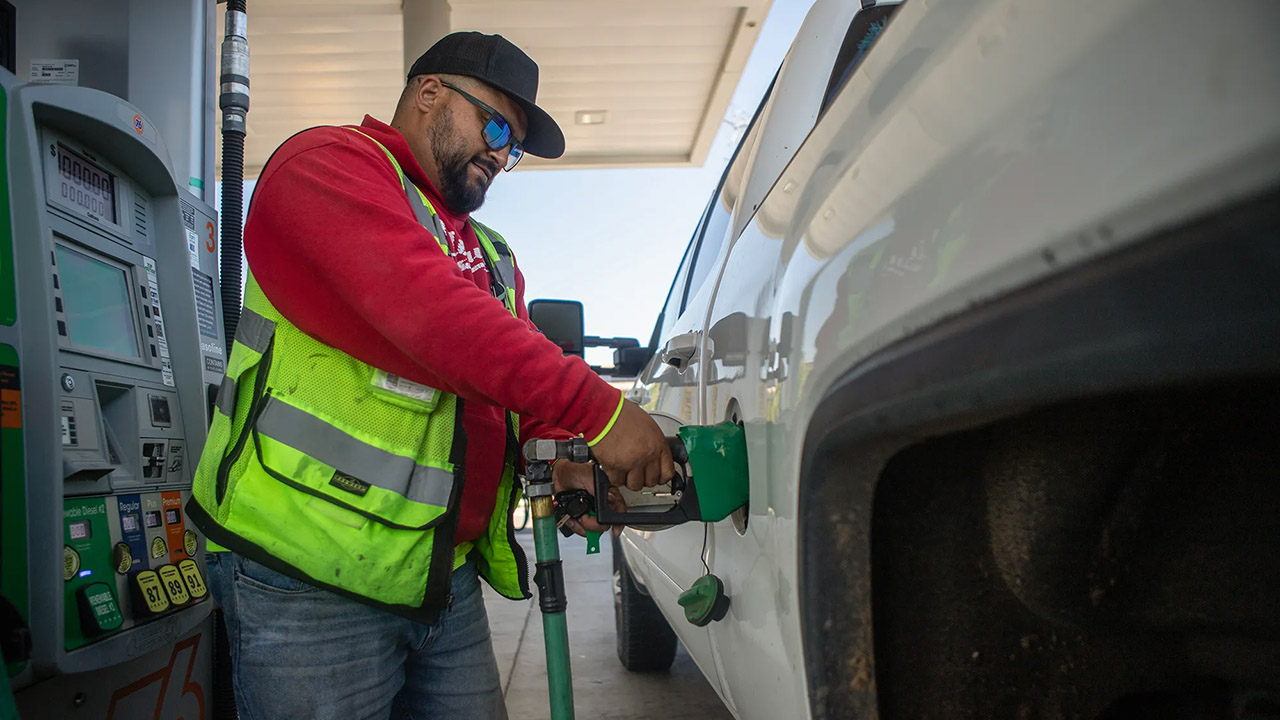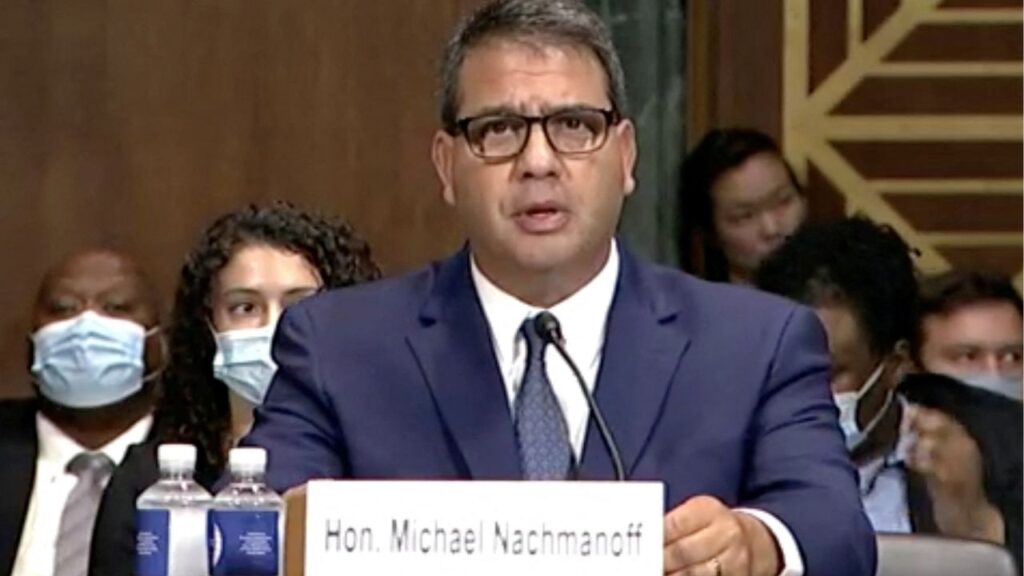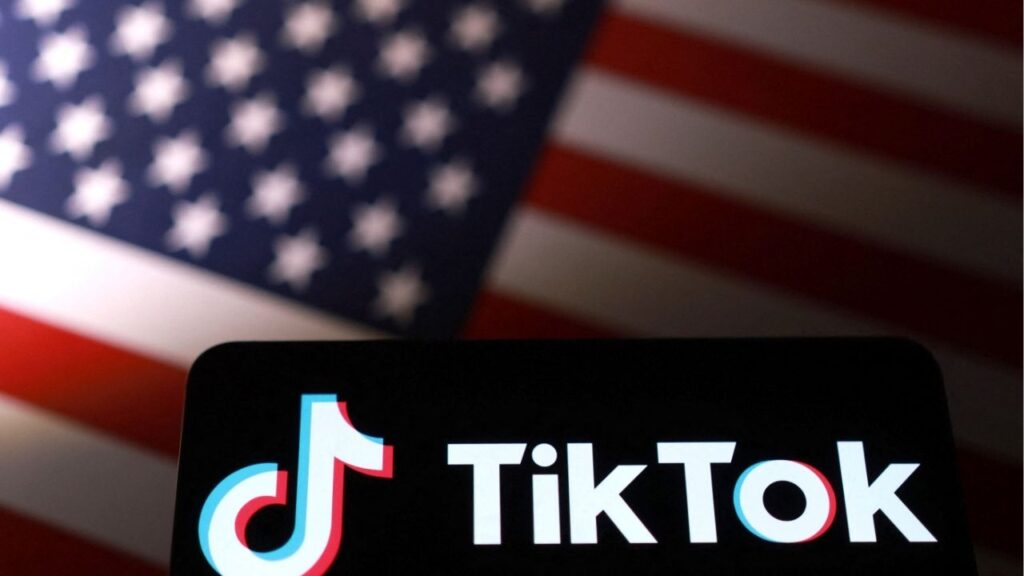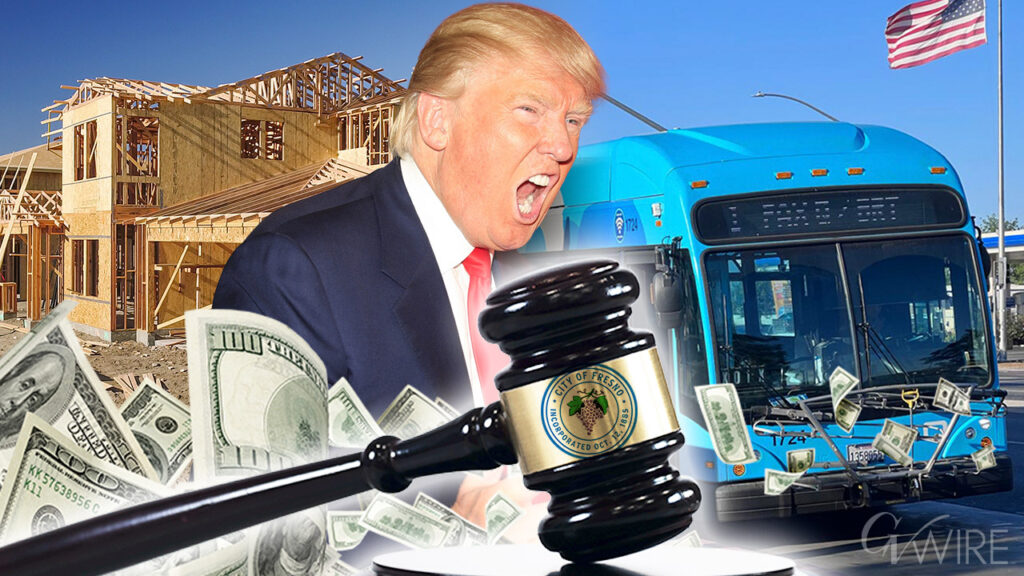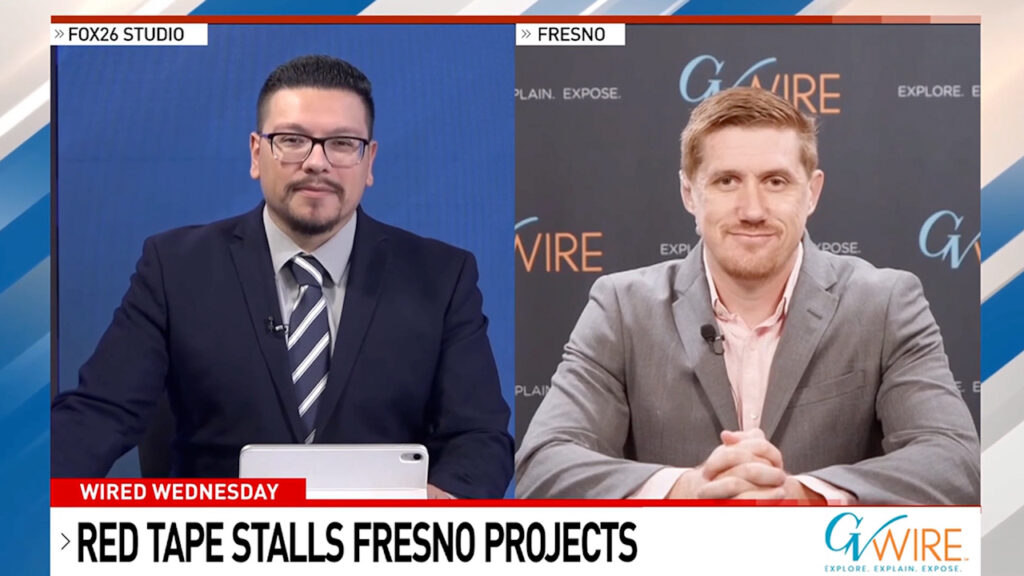The governor wants new gas reserves to dampen seasonal price spikes. Refiners say the move would raise prices and require new storage tanks. (CalMatters/Larry Valenzuela)

- Experts say Newsom's gas reserve plan could save Californians up to $2 billion, but won't solve all pricing issues.
- Refiners argue the plan is impractical and could lead to higher prices, while the state pushes back on storage concerns.
- California's "mystery gasoline surcharge" contributes to higher prices, with experts citing unique market dynamics as factors.
Share
|
Getting your Trinity Audio player ready...
|
Fall is in the air, and that means California drivers are gearing up for seasonal price increases at the pump. A plan by Gov. Gavin Newsom to hold down those spikes cleared the Assembly petroleum committee Thursday.

Malena Carollo
CalMatters
The proposal, the focus of a special legislative session, is set to head to an Assembly floor vote Tuesday.
California drivers typically pay higher prices for gas than the rest of the country, which is felt most acutely when seasonal maintenance at the state’s refiners pushes up prices. Newsom’s proposal would instate a yet-to-be-determined mandatory minimum amount of fuel that those refiners need to have on hand to lessen such spikes. The petroleum industry has decried the plan as costly and impractical, while Newsom’s office said the price spikes themselves are a result of corporate greed.
Experts said that the storage requirements would dampen the spikes as intended (the state projects up to about $2 billion in savings for California drivers) but wouldn’t address a large portion of the price difference between California and the rest of the country.
“This is not a panacea for all the issues in the California gas market,” Neale Mahoney, Stanford University economist, said in an interview with CalMatters. “This is, I would argue, an economically sound, well-targeted policy response to the problem of gas prices spiking whenever we have a disruption, even though we know disruptions happen and we should have some level of preparation.”
“This is, I would argue, an economically sound, well-targeted policy.”
Neale Mahoney, Stanford University economist
Refiners argue that building up a reserve during the summer months, when demand is high and fuel is more challenging to blend, could lead to higher prices. They have also said that they lack tankage to store a reserve, an assertion the state and economists have pushed back on, and that it would be expensive and time-consuming to build more.
Related Story: New California Law Gives Tenants More Time to Respond to Eviction Notices
Seasonal Maintenance Drives Higher Prices, Profits
Until the last decade, experts said, the difference between California’s prices and the national average was primarily made up of state taxes on gasoline and environmental fees. California also has a more emissions-friendly blend of gas than the rest of the country, which pushes up the cost further. But after a 2015 explosion at a refinery in Torrance owned by ExxonMobil at the time, the premium paid for gas in California rose still further, vastly outpacing the national average.
The high baseline price of gas in California makes price spikes all the more painful for consumers. The main driver for the spikes, according to the governor’s office and experts, is the small number of refiners in California and their seasonal maintenance schedule.
California in recent years has seen a consolidation of refinery ownership. When a refinery goes down for maintenance, it is not contributing the same amount of fuel to the market as it typically does. That makes remaining fuel on the market more valuable, driving up prices temporarily.
Newsom’s proposal seeks to smooth prices during these maintenance shutdowns. Legislation from 2022 gave the state access to information from California’s refineries, including how much fuel they have on hand. The state then determined that the lack of supply during maintenance is a “key factor” behind the spikes.
Requiring refiners to stockpile higher levels of gas would ensure “we have enough supply that it doesn’t incentivize that trading behavior that increases prices,” said California Energy Commission spokesperson Lindsay Buckley.
Refiners in this current market won’t accumulate enough gas to dampen spikes on their own because they make more money when prices spike and so “don’t have the incentive to do what a competitive market would do and do what’s in the interest of the California customer,” Stanford’s Mahoney said
Experts also point out that Australia and Japan have put into place reserves to smooth out price spikes.
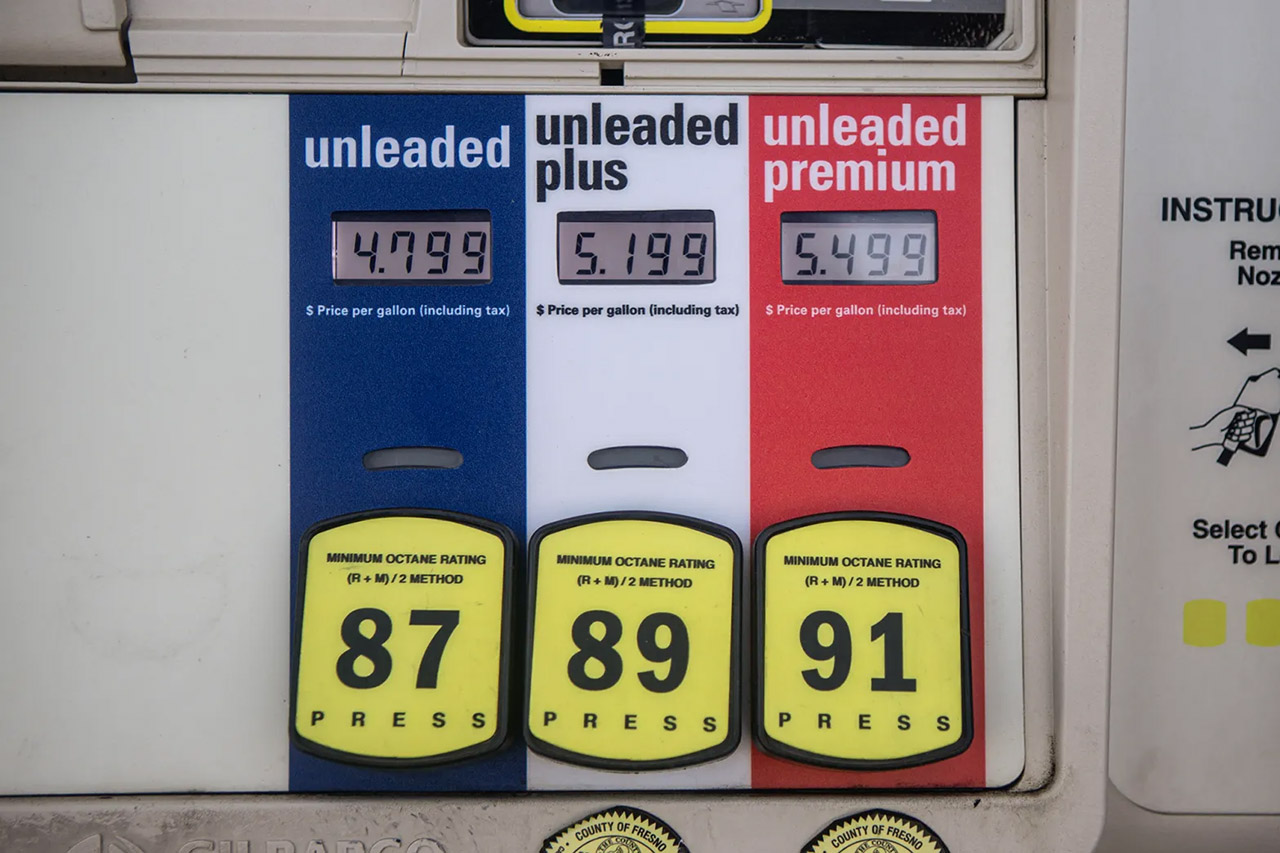
Potential Problems With Stockpiling Gas
For all their promise, gasoline reserve mandates need to be carefully implemented, experts said. Newsom’s plan is vague, leaving many specifics, including the size of the reserve itself, up to a to-be-created panel. Buckley said it would be up to Energy Commission staff to implement the plan once it’s fleshed out.
But University of California Berkeley economist Severin Borenstein, who testified at a hearing on Newsom’s proposal last week, said there also need to be safeguards against using the gasoline reserves to score political points rather than to limit price spikes.
“Once you have inventory like this, it is going to be very tempting for whoever has political power to try to release that inventory when it is helpful to them to push down gasoline prices,” he testified at the hearing before the Assembly Committee on Petroleum and Gasoline Supply.
Related Story: Only 1 in 5 California Community College Students Makes It to a University, ...
The Western States Petroleum Association, an industry group, said in a Sept. 19 letter to the state that not only is there not enough supply to store additional excess of, there isn’t enough storage for the reserve, and building even one more tank would take “the better part of a decade” and cost “tens of millions of dollars.”
“You’re asking a just-in-time system to slow down and back up the pipes just in case you have price volatility,” Mark Nechodom, senior director of science and technology for WSPA, said in an interview with CalMatters.
“You’re asking a just-in-time system to slow down and back up the pipes just in case you have price volatility.”
Mark Nechodom, senior director of science and technology, Western States Petroleum Association
Experts and Buckley told CalMatters that no extra storage should need to be built, as the stock could be built up during non-maintenance times of the year. The state Division of Petroleum Market Oversight has said that refiners ended this summer with 2.4 million fewer barrels in storage than the 12.3 million barrels they had at the start of the year, a reduction the refiners have blamed on the scramble to meet demand during the busy travel season and on the fuel blend they produce in the summer, which is more difficult to refine. Refiners who lack storage capacity could buy storage credits from other refiners to make up the difference, experts added.
An amended version of Newsom’s plan would require that refiners store gas in existing tanks rather than build new ones, Politico reported.
The ‘Mystery Gasoline Surcharge’
The refiners say Newsom’s plans add to a long list of requirements that are disincentivizing production of gas in the state, and that this would further hinder investments, which could increase prices. “The uniqueness on top of uniqueness on top of uniqueness has made this not the kind of environment that refiners want to continue to invest in,” said Eloy Garcia, lobbyist for industry group the WSPA at last week’s hearing. “You are further and further making this a unique refining environment when you need refiners to stay in California.”
Another caveat on Newsom’s plan is that while it could help reduce price spikes, it won’t solve the broader issue of California’s higher gas prices, experts said. One of the largest contributors to California’s gas prices exceeding other states’ is something Borenstein has dubbed the “mystery gasoline surcharge.” Since the 2015 Torrance explosion, gas prices have routinely been higher than the rest of the country, and taxes, environmental fees, and supply shortages don’t explain it. The “mystery surcharge” accounts for about 40 cents per gallon, he said, or about $60 billion from Californians since 2015.
It’s not clear why prices remained high for years after the Torrance explosion; the refinery came back online a year later. The state sued two multinational gasoline firms for allegedly using the incident to launch “a scheme to drive up gas prices for their own profit.” A federal judge gave preliminary approval to a $13.9 million settlement of the case last month.
Related Story: Democrats Poised to Flip Key California House Seats, New Poll Suggests
Some factors that might be affecting the price premium, Borenstein said, are California’s unique relationship with various industry players, from suppliers down to gas stations. The state has a higher share than the rest of the country, he said, of both branded gas (think big producers like Chevron) and contracts between refiners and gas stations – called a “dealer tank wagon” arrangement – that impose provisions like fees and fixed charges, giving refiners more influence over the consumer-facing price.
“It’s pretty much unheard of outside of California,” he said. And while refiners say they don’t control the price at the pump, “they have a lot more control over retail stations.”
This, he said, may be contributing to another issue unique to California, in which there are significant price disparities between different gas stations, even within the same city. Discount stations, for example, that don’t use big brands’ gasoline, often have significantly cheaper gas prices.
And while the state government is currently investigating the mystery surcharge, storage requirements likely won’t solve for it.
About the Author
Malena Carollo investigates broken systems and wrongdoing.
About CalMatters
CalMatters is a nonprofit, nonpartisan newsroom committed to explaining California policy and politics.
RELATED TOPICS:
Categories

ABC30 Adds Berger to Sports Team. Familiar Faces Move On



